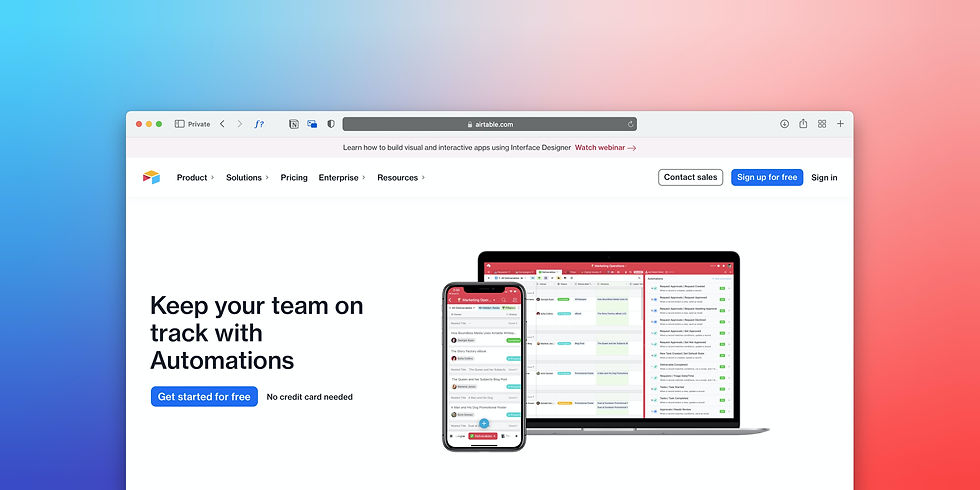3-Step Business Automation Audit (No Devs Needed)
- Canute Fernandes
- Jul 31, 2025
- 2 min read

Introduction: Automate the Right Things—Not Everything
Hiring developers to “automate everything” sounds great—until you realize your processes aren't mapped, standardized, or even worth automating yet.
Before you spend a dime on development, run a business automation audit. This simple, 3-part diagnostic helps you find high-impact, low-effort wins—whether you’re a startup or scaling SMB.
🧠 Why Audit Before Automating?
✅ Avoid wasted dev costs on unstable processes
✅ Prioritize ROI over shiny tools
✅ Empower teams with clarity on what to automate (and what to skip)
✅ Align automation with strategic business goals
“Automation amplifies what already works. Audits ensure you're not scaling chaos.”
✅ Step 1: Map Core Workflows by Department
Start with a whiteboard, Notion doc, or flowchart tool.
Document:
🔁 Repetitive tasks (daily, weekly, monthly)
🕒 Time consumed
🧑💼 Who performs them
📥 Tools involved (email, spreadsheets, CRMs, etc.)
🔄 Trigger → Action → Outcome
💡 Use categories like HR, Finance, Sales, Ops, IT.
✅ Step 2: Score Each Process Using the RICE Framework
Adapted for automation, RICE helps you prioritize processes that deliver maximum ROI:
Metric | What to Evaluate |
Reach | How many people/periods are impacted? |
Impact | How much time or error is saved per automation? |
Confidence | How repeatable/predictable is the task? |
Effort | How complex is the automation (tools, API, logic needed)? |
📊 Score each process 1–5 per category → Calculate (Reach × Impact × Confidence) ÷ Effort
Focus on high-score, low-effort processes first.
✅ Step 3: Match to No-Code Tools (Before Custom Dev)
For each automation-ready process, ask:
Can this be built with Zapier, Make, Airtable, or n8n?
Is there a built-in feature in our SaaS apps (Slack, ClickUp, G Suite)?
Are APIs or integrations already available?
If 80%+ of the workflow can be handled with no-code tools, skip custom development—for now.
🛠️ Sample Automation Matches:
Process | Automation Tool | Developer Needed? |
New hire onboarding checklist | Zapier / Notion | ❌ |
Invoice approvals | Make + Gmail | ❌ |
Daily KPI email | n8n + Google Sheets | ❌ |
Custom AI chatbot integration | LangChain + API work | ✅ |
🧭 Bonus: Signs You’re Ready for Developer-Led Automation
✔️ You’ve exhausted no-code options
✔️ You need custom integrations or data logic
✔️ You require native app development
✔️ You have a dedicated dev team or partner agency
✔️ Automation needs to run inside core product/backend
📊 Real-World Snapshot: Audit in Action
Company: Confidential (8-person SaaS startup)
Initial Challenge: Manual onboarding, delayed reports, no automation plan
Audit Outcome:
Mapped 14 repetitive workflows
Prioritized 6 using RICE
Automated 5 processes with Airtable + Make
Saved ~10 hours/week across team without hiring devs
💬 FAQ
Q: What’s the minimum team size to benefit from automation?
A: Even solo founders benefit—especially in lead management, billing, and email workflows.
Q: Do I need technical skills to run this audit?
A: No. The templates are designed for business users and operators.
Q: When should I hire a developer for automation?
A: When no-code tools can’t support your logic, scale, or security needs.




Comments